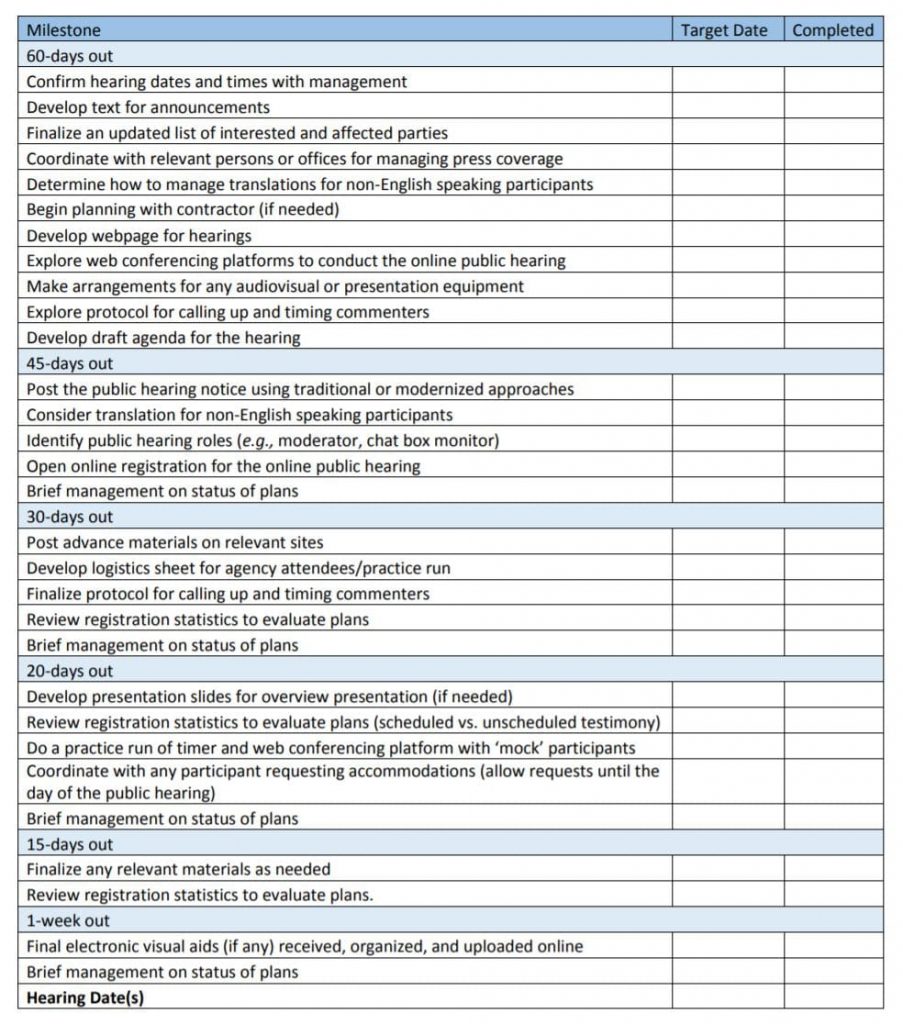Technology Aims to Help States and Tribes Improve Water Quality Standard Public Hearings
States and tribes looking to maximize participation, simplify implementation and cut costs associated with public hearings are in luck. The U.S. Environmental Protection Agency (EPA) released a new resource that outlines 12 suggestions for how states and tribes can modernize the hearing process by implementing technology.
Under the Clean Water Act, states and authorized tribes are required to hold public hearings for the purposes of reviewing and adopting new or revised water quality standards. Because public participation is an important aspect of decision making on water quality standards, this new resource will be a great asset in increasing engagement within the community.
Modernizing Public Hearings for Water Quality Standard Decisions Consistent with 40 CFR 25.5
EPA’s document titled Modernizing Public Hearings for Water Quality Standard Decisions Consistent with 40 CFR 25.5 outlines ways to incorporate technology into public hearings while also continuing to meet federal requirements. The 12 suggestions in the document can help states and water quality standard-authorized tribes in two ways. For one, implementing technology in the hearing process will maximize opportunities for effective public input when it comes to water quality standard decision making. Secondly, incorporating such technology could facilitate in more efficient usage of spending resources by states and tribes.
Suggestions for Incorporating Technology into the Public Hearing Process
- Advertise online to help publicize the public hearing
- Use email lists to disseminate information to interested parties
- Post relevant public hearing materials online for easy access
- Conduct an in-person hearing while simultaneously broadcasting it via a web conferencing platform
- Conduct an online only public hearing using a web conferencing platform
- Use the internet to schedule witnesses in advance
- Encourage speakers to submit relevant materials or visual aids electronically in advance of the public hearing
- Allow unscheduled presenters to register to provide oral comments during an online public hearing
- Allow comments and questions to be made orally through a web conferencing platform
- Use a web conferencing platform’s chat/instant message feature
- Record the proceedings of the online public hearing
- Post the recorded public hearing online/on website
For a detailed description of each suggestion, please visit the online document file here.
Please note that these suggestions are not required and will not be imposed on any state or tribe. States and tribes have the choice to (or not to) incorporate any of these technologies into their public hearing process. In addition, there are also several factors that the EPA have considered in reference to these suggestions.
Considerations
- The public’s accessibility to and acceptance of computers and the internet
- The capacity of a state of water quality standard-authorized tribe to integrate and implement technology
- The geographic scope of a water quality standard decision
- The nature of a water quality standard decision
- Presence of local decision-making or advisory boards
- The state of water quality standard-authorized tribe’s overall public participation process
- Public feedback on the integration of technology
- Number of participants at each public hearing
Given that a large part of these suggestions are focused on online hearings, The EPA’s Modernizing Public Hearings document includes examples and milestones for planning an online hearing.
Here is the EPA’s milestone checklist, a super helpful tool to have handy when planning an online hearing.

As technology continues to evolve in the water industry, it’s certainly time for modern technological approaches to communicating to be implemented as well. So, what do you think?
For more information, please be sure to reference the EPA’s resource here. In addition, you can also contact the EPA directly with any questions.
